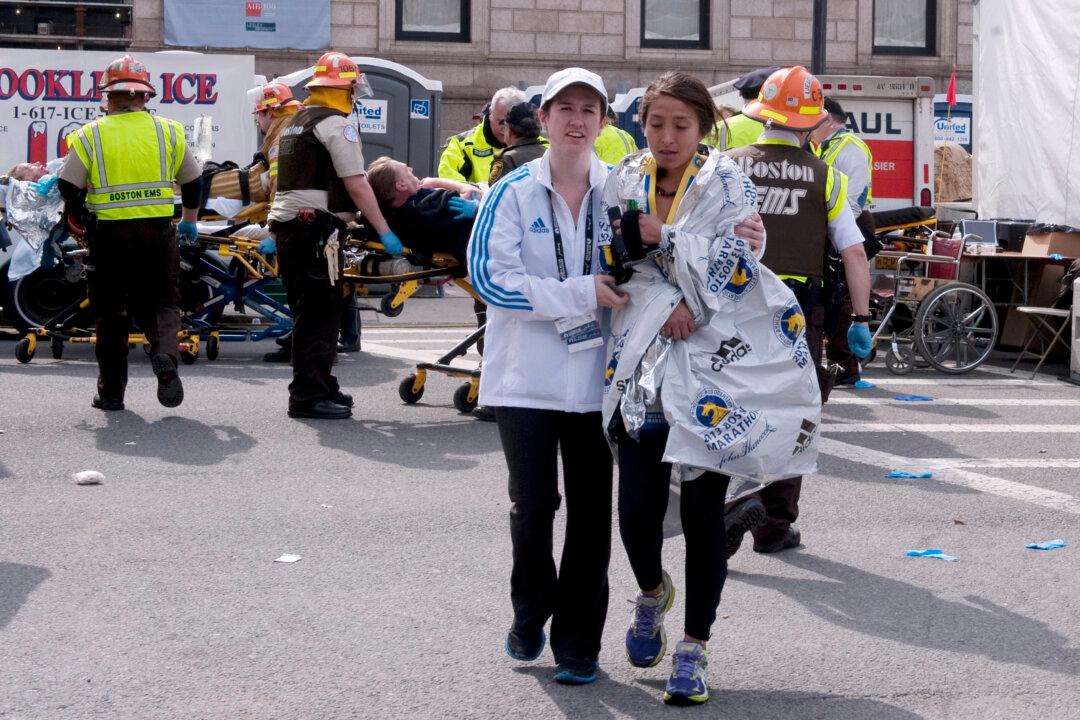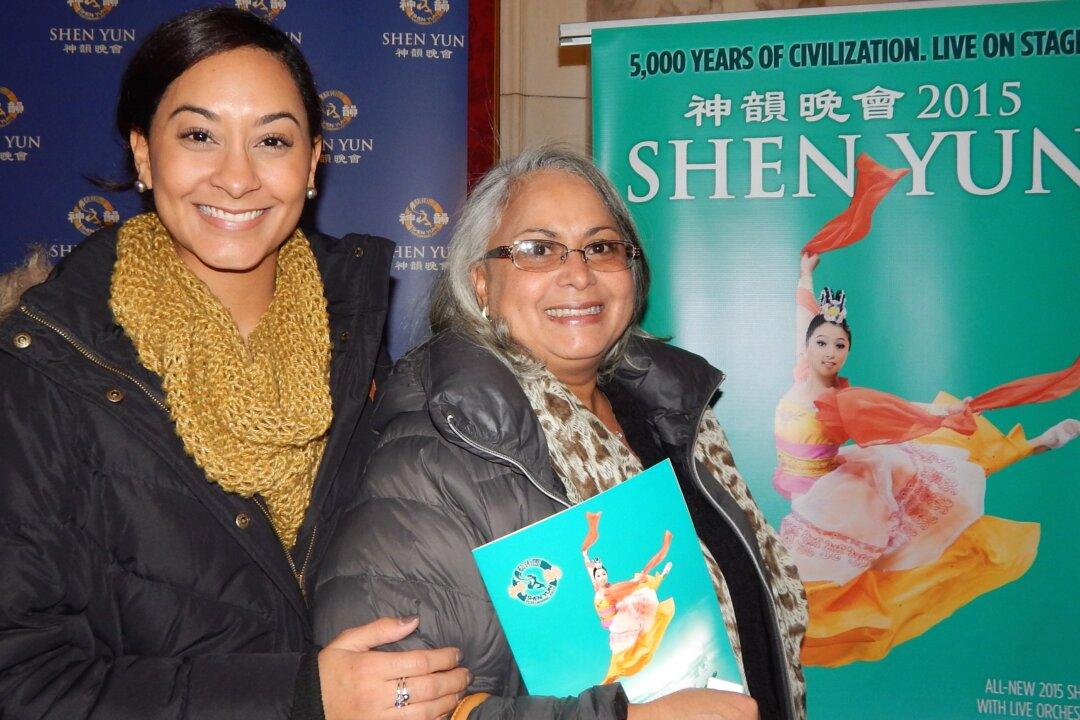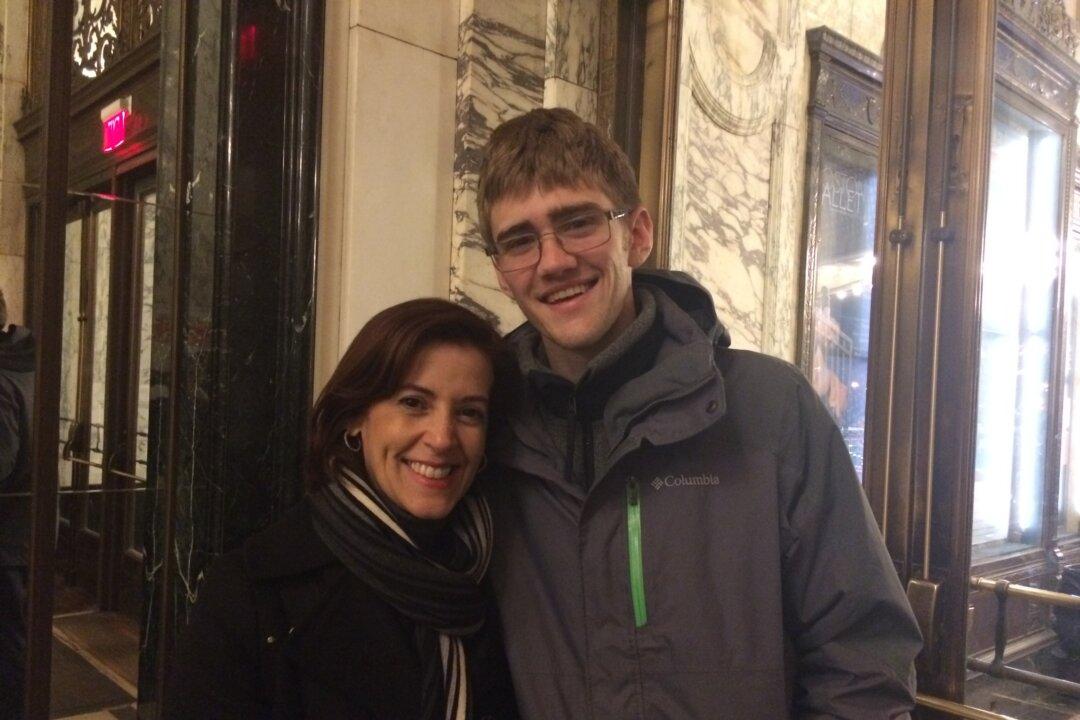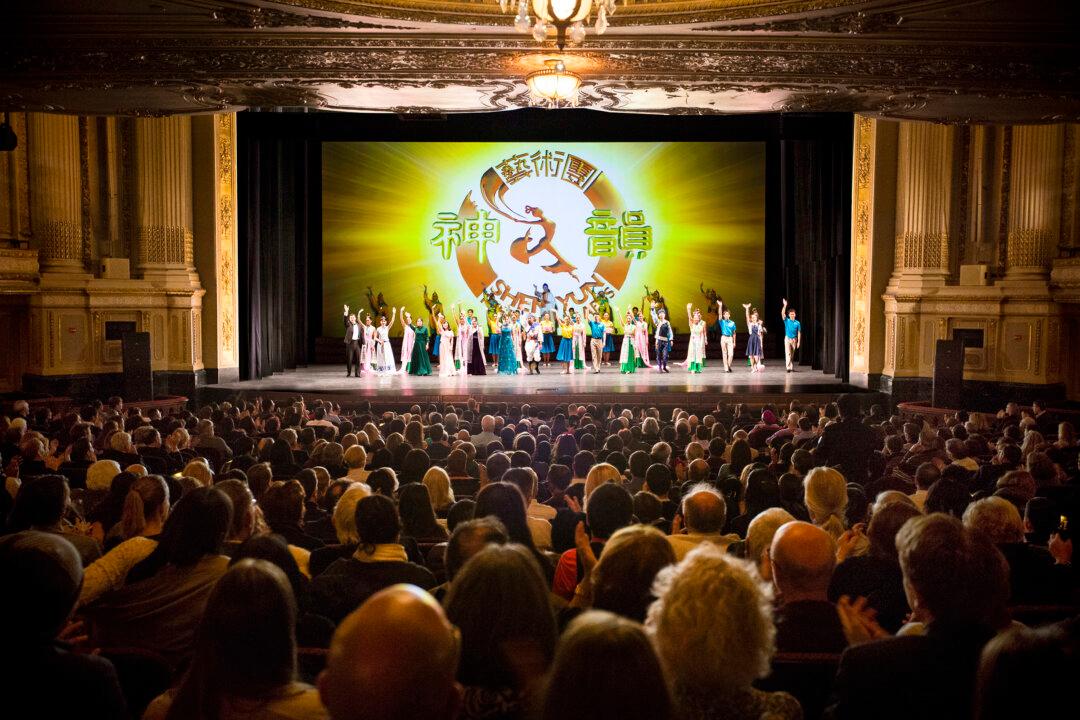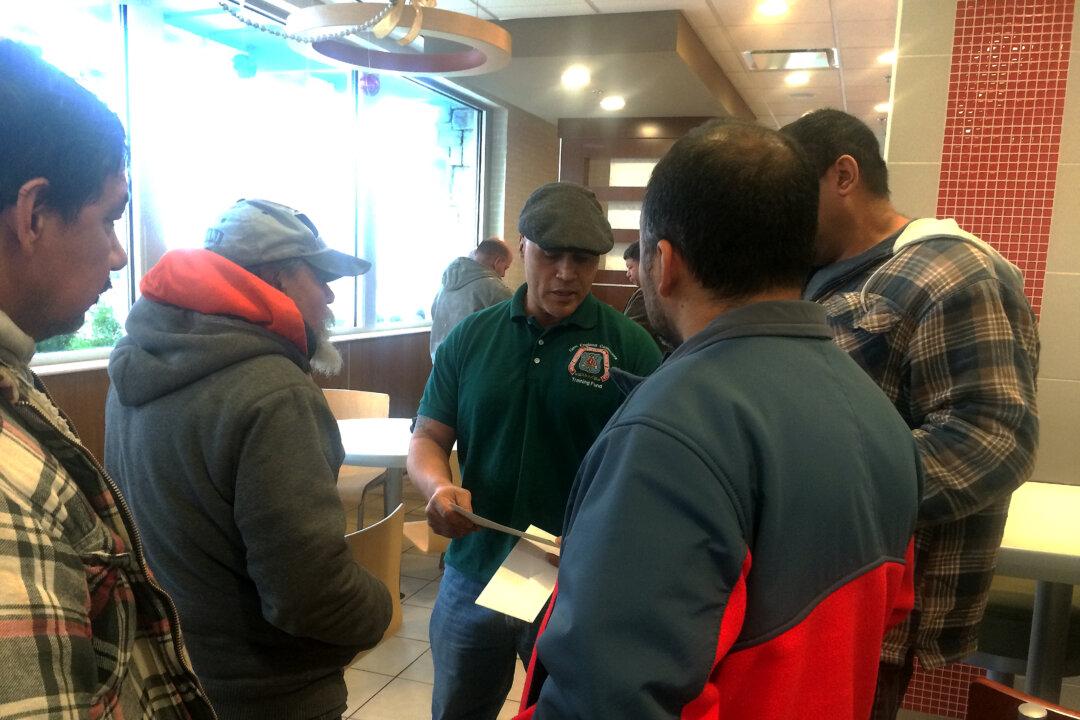BOSTON—Father William Hamilton sits quietly off to the side of a room packed with police officers, bomb-sniffing dogs, and camera-wielding reporters.
The Boston police have just finished their last media briefing the day after two bombs exploded at the finish line of the Boston Marathon, leaving three dead, over 170 wounded, and a city in shock.
Father Hamilton is a chaplain for Massachusetts State Police and the Bureau of Alcohol, Tobacco, Firearms, and Explosives, known as the ATF.
His job is to help first responders, police, and emergency medical technicians (EMTs) cope with violent and tragic things they see every day on the job.
When everyone is running away from the explosions, these are the people who are running toward them.
“These people have seen now what most people would see in a war zone. We don’t normally see this in the streets of Boston, or in any of our city streets,” Hamilton says.
To Father Hamilton it seems like these tragedies are constantly unfolding. “What has become of the moral standard? The sanctity of an individual life?” Hamilton says, his eyes drifting toward the ceiling.
“We are supposed to be caring for each other and lifting each other up—not tearing each other down,” he says.
Tragic and violent events like the Boston Marathon bombings or the recent Newtown shootings can lead to a frenzy of finger pointing and a rush for new legislation. But according to Hamilton, “all the legislation in the world is not going to stop it.”
“Things don’t kill people, people kill people. We have to change people’s hearts,” Hamilton says.
At the Scene
Randy Crookshank wrapped a silver emergency blanket around his wife. She had just finished the marathon when the bombs exploded behind them; they ran down the street away from the blasts.
“As we are making our way through in comes a sea of police in their bright lime green vests. ‘Excuse me, pardon me,’ and they are coming out of nowhere, making their way up Boylston Street, through thousands of runners who were staggering and bleary.”
There is increasing urgency in Crookshanks voice as he recalls the scene:
“As we turned the corner toward the family waiting area, we could hear the ambulances already coming.”
First responders were on the scene within minutes of the explosions.
Crookshank, whose wife ran with the Boston Police Runner’s Club, describes off duty officers who had just finished the marathon putting on their uniforms to get to work:
“A lot of guys ran the marathon, didn’t shower, got dressed and went to work to see what they could do. Duty calls and there they go, right out the door.”
Crookshank was left grateful and speechless, impressed with the immediacy of the response and the commitment of the men and women trained to run toward the havoc.
After the Adrenaline Dies Down
Father Hamilton knows too well the price first responders can pay after the adrenaline dies down. He worked as an EMT for 12 years, serving as a priest at the same time.
“Four months after I was ordained I was hit broadside in an intersection. I was basically pronounced dead,” he says.
Hamilton’s eyes brighten as leans forward; he is a man with a mission. “In my recuperation all I wanted to do was to give back to public safety, to keep good strong people on the job,” he says
Hamilton’s goal is to help these first responders process what they see so they can keep going. “We call it acting normally in an abnormal situation,” he says.
Recuperation and support is an essential part of an emergency response team, because without it emergency personnel can succumb to the stress. And they may end up leaving their jobs.
“Then we lose all the experience and the training that they have,” Hamilton says. “And the training that is involved in these things is astronomical.”
Reflecting
Resonant in the voices of those close to these tragedies is a need to reflect and take a moment to understand what the recent events mean.
Crookshank, his wife still visibly shaken by the events of the day before, struggles to explain:
“I think last night it settled in. The adrenaline stops, you have a chance to reflect. Somebody wanted to do this,” His voice trails off. “Then you start to wonder: What’s going on? Why in the world?”
Father Hamilton also has questions. “The issue at stake here is what has become of us? Where have we been and where are we going?”
On the Mend
Debbie Tebbs and Jess Perry traveled from Utah with their husbands to run in the Boston Marathon. They too were at the finish line when the bombs went off.
The day after the explosion, the two women were out in the brilliant sun taking in the city.
“You can’t let things like this take away from the joy that can come from events like this. It brings people together from every race and every nation,” Perry says smiling.
While the tragedy may have dimmed the beauty of the marathon, it had not taken away its value.
Tebbs, who has run the Boston Marathon three times, will be back next year. “You can’t live your life in fear. There is way more good in the world than evil,” she says.
Fear of those different from us and hatred born of that fear can drive people to violence, Hamilton says.
“The real challenge is to become more of the person I am supposed to be. Not destroy someone who is different from me,” he says.
